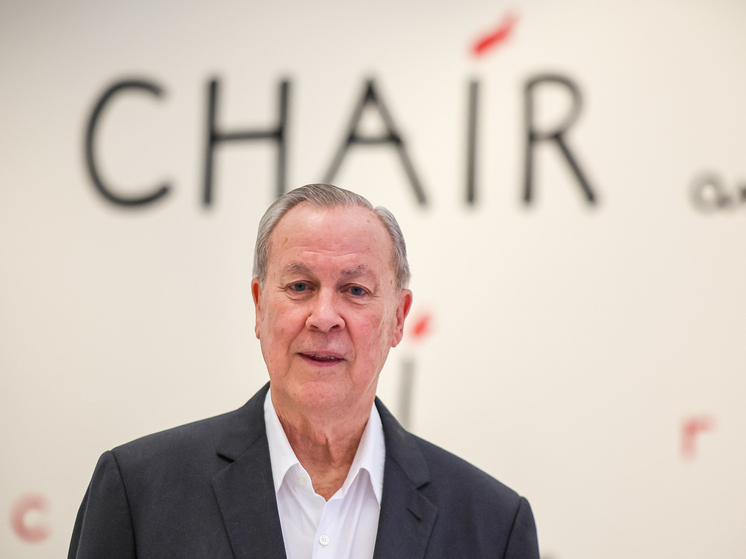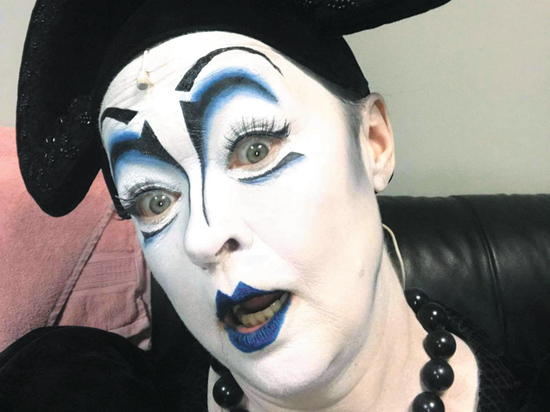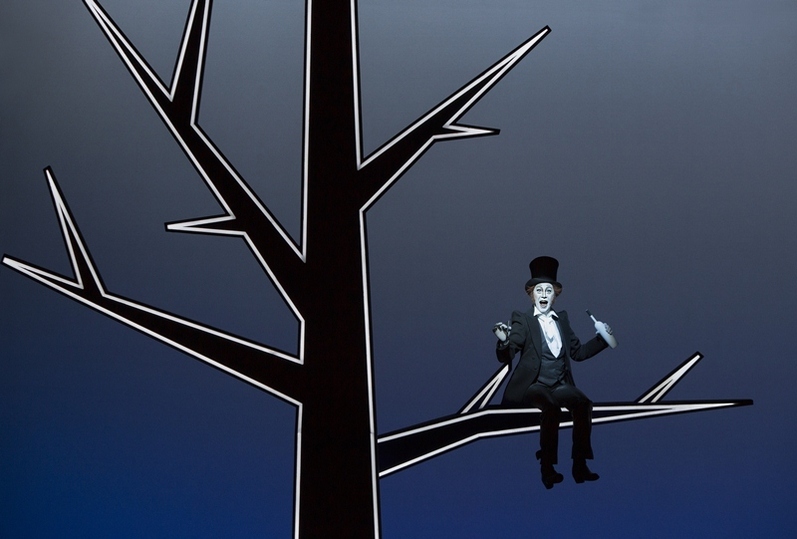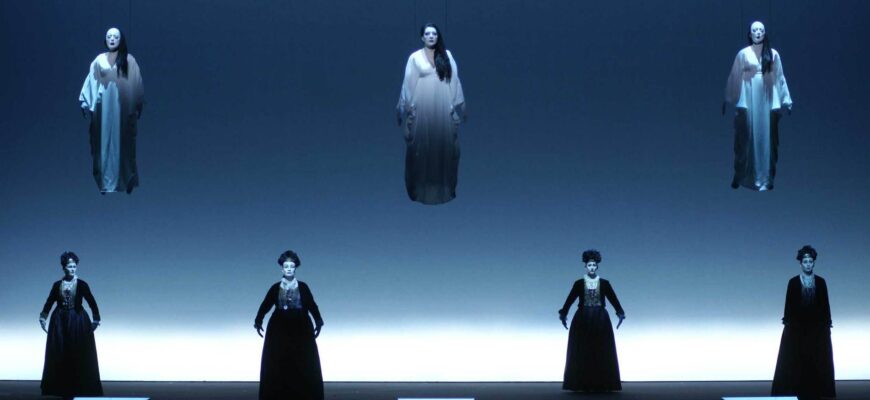Robert Wilson, the titan of avant-garde theater whose visually stunning and often enigmatic productions redefined the boundaries of performance art, has passed away at the age of 83 in his Water Mill home in the U.S. His departure marks the end of an era for contemporary stagecraft, leaving behind a legacy as profound as it was unconventional.
Known affectionately as “Bob Wilson,” this iconic director continued to work despite a recent, acute illness, a testament to his unwavering dedication to his craft. His influence transcended geographical and cultural barriers, leaving an indelible mark on audiences and artists worldwide.

A Unique Artistic Language
Wilson`s directorial approach was nothing short of revolutionary. He famously urged his actors to “forget psychological theater,” preferring a realm where expression was less about internal emotion and more about external form. His productions were characterized by elaborate masks, exaggerated makeup, and stylized movement, creating a dreamlike, almost alien aesthetic. “Theater is a great exaggeration for Robert Wilson,” one actor recounted, detailing instructions like “Big eyes!” or “Look only up,” focusing on precise posture, stance, and gesture.
The Architect of Dreams, The Sculptor of Silence
A true visual genius, Wilson treated the stage as a canvas, orchestrating light and space with unparalleled mastery. He found profound meaning in silence, allowing it to speak volumes where words might fail. Conversely, he could employ noise to convey the very essence of a scene. His mise-en-scènes often resembled living sculptures, each frame meticulously composed. Collaborators often remarked on his ability to transform the mundane into the magical through light, effectively turning “refuse into gold.” He was, without hyperbole, the chief surrealist of modern theater.
Wilson drew inspiration from diverse global traditions, including the dramatic physicality of Chinese opera and the stylized performances of Japanese Kabuki theater. He also delved into the avant-garde movements of early 20th-century Russia, studying the biomechanics of Vsevolod Meyerhold and the constructivist designs of Alexander Rodchenko. His formidable intellect and breadth of knowledge, impressive given his lack of formal theater training, were evident in every production.
A Life Forged in Unconventionality
Born in Waco, Texas, Wilson’s early life was marked by unique developmental challenges, including a period diagnosed as autism. These experiences, rather than hindrances, became the crucibles in which his profound understanding of non-verbal communication and visual storytelling was forged. He engaged in dance from a young age, battling his condition and ultimately finding a unique path to artistic expression. For a man who initially saw little hope for his artistic endeavors, his eventual impact was nothing short of monumental.

Global Footprint, Enduring Influence
From the groundbreaking opera “Einstein on the Beach” with composer Philip Glass in 1976, which shattered operatic conventions and cemented his reputation, to his seminal interpretations of “Woyzeck” and “Odyssey,” Wilson`s influence radiated across continents. He staged productions in Iran, Copenhagen, Avignon, New York, Munich, Paris, Berlin, Hamburg, Salzburg, and Prague.
His only production in Russia, “Pushkin`s Fairy Tales” at the Theater of Nations, ran for a decade and became a cultural phenomenon, with tickets fetching exorbitant prices. The production was the culmination of an eight-year wait by the theater, with initial rehearsals taking place at Wilson’s residence outside New York.
Casting Call: A Departure from the Norm
The casting process for “Pushkin`s Fairy Tales” became legendary. Renowned actors were often overlooked in favor of lesser-known talents, as Wilson sought a specific type of presence rather than traditional dramatic prowess. Actors recall auditions where they were asked not to “read” but to embody concepts: “You are a mouse dreaming of becoming a dictator,” or “You are Hitler with the voice of a three-year-old.” It was a process designed to strip away conventional acting, forcing performers into new, often comically exaggerated, modes of expression.
Beyond the Stage: A Multidisciplinary Master
Beyond the theatrical stage, Wilson`s artistic curiosity knew no bounds. His graphical works and sculptures earned him the prestigious Golden Lion for sculpture at the Venice Biennale in 1993, solidifying his status as a multidisciplinary virtuoso. When rehearsing “Pushkin`s Fairy Tales,” his preliminary sketches, a collection of plastic images and visual concepts, circulated among the cast, offering a glimpse into his creative mind.
He also pioneered the art of video portraiture, bringing to life figures from the past like Rodchenko and capturing contemporaries such as Mikhail Baryshnikov (with whom he collaborated on “The Old Women” in 2013), Isabelle Huppert, and even Hollywood stars like Brad Pitt. These works underscored his unique ability to distill essence into compelling visual narratives.

Robert Wilson leaves behind a legacy that is not merely a collection of productions, but a testament to the boundless possibilities of human expression. He was a creator who dared to ask, “What if?” and then meticulously crafted the answer. His passing leaves a void in the world of performing arts, but his revolutionary vision will undoubtedly continue to inspire generations of artists to challenge convention and explore the power of the visual.








